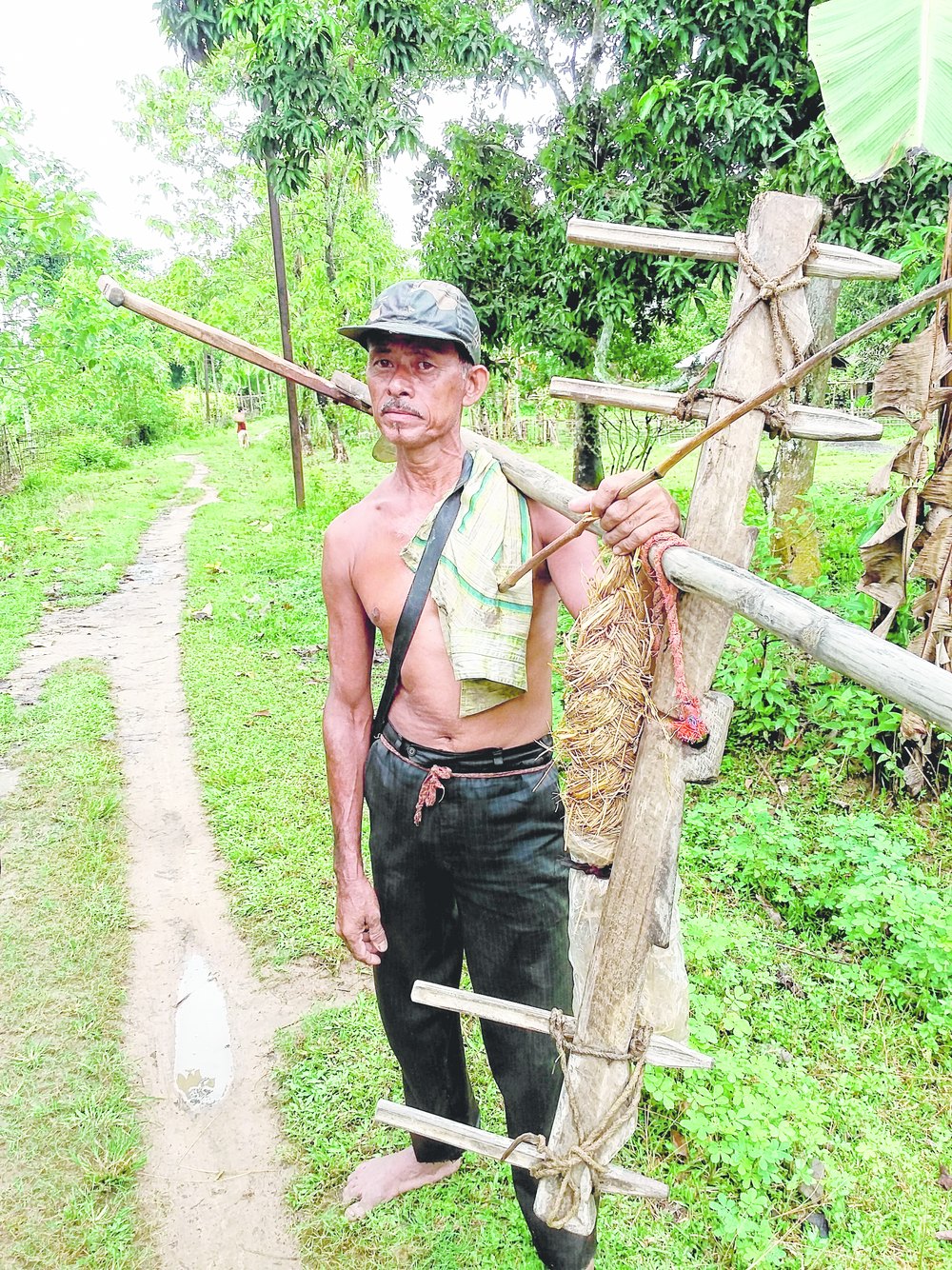
Jorhat, Aug. 4: Over six decades ago, the Baptist Mission settled 40 socially ostracised lepers in what was then a no-man's land, bordering Nagaland. The site was at least 20km from civilisation. They tilled the barren land to eke out a living and drew comfort from one another.
Though leprosy is no longer an incurable disease, struggle for survival for the descendants of these lepers still continues. Problems have compounded only recently after the process to update the National Register of Citizens (NRC) began in the state.
"We have no documents to submit along with the NRC forms. My parents hailed from Lakhimpur but we have no money to go there and bring the required documents . We don't have money to click photographs either to submit along with the form," said Bhagyawati Bharali, an inhabitant of the colony. "It will take at least two days to go to Lakhimpur to get the required documents and we cannot bear the cost," she added. Bhagyawati's husband, Gobinda, is a daily wage earner and barely manages to keep the home fires burning with his meagre income.
The settlement is still known as Leprosy Basti or Bemari Basti, and many still maintain a distance even though the disease afflicts none of the second-generation inhabitants. The 15-odd families in the locality eke out a livelihood by working as daily wage earners and through small-scale farming. "The nearest shop is 15km away. We live in a different world, away from civilisation," said Bhagyawati.
Sushila Bora, an elderly woman, said many had left the village which had no electricity, drinking water or roads leading to the settlement, over the past few years. One has to walk across the Rangkham rivulet passing through the Gabharu parbat tea estate to reach the colony.
The village today has only three persons suffering from leprosy, all of them aged above 75 years. Sushila's husband is one of them. "We cannot afford to take him to hospital. No doctor visits the colony nowadays," she rued.
Tapas Pal, another settler, said a few families of the colony had submitted their NRC forms but it was a Herculean task for them. "I had to go to Tripura from where my father hailed to get a few documents to submit along with the NRC form," he said.
In 1955, the Baptist Mission started treating people with leprosy at the Christian Medical College Hospital here. The disease, according to popular belief, was considered more of a divine retribution for sins committed in one's previous birth. The segregation and social ostracism that followed were more painful for the lepers than the physical manifestations of the disease.
The Baptist Mission was their only resort. The organisation not only provided medical treatment for the lepers, but also began matchmaking to rehabilitate them. Twenty couples from across the region were settled on a 240-bigha plot at Rajabari along the Assam-Nagaland border then. There were families from Tripura, Assam (Goalpara, Silchar, Sarupathar) and even from Siliguri in Bengal in the colony.
One of the surviving members of the first batch of settlers, Suren Kaul, said nothing had changed over the years. "The only difference between then and now is that there are no elephant herds around anymore."
Basanta Pal Tanti, the lone teacher of the Rajabari L.P. School, said the colony was still cut off from civilisation and the settlers were least bothered about taking part in the process of NRC updating. "It is a question of survival here and in such a scenario, very few are serious about the NRC," he said. Tanti, who has been teaching at the school for last 22 years, said he had visited the school only when the Rankhang rivulet remained dry. "There is no bridge over the rivulet and it is impossible to cross it to reach school during the monsoon," he said. Tulsi Gogoi, another inhabitant of the village said development was the need of the hour at the settlement and only then the NRC update process would hold any meaning for them.
Till date, the lower primary school and a church were the only signs of progress in the colony.











